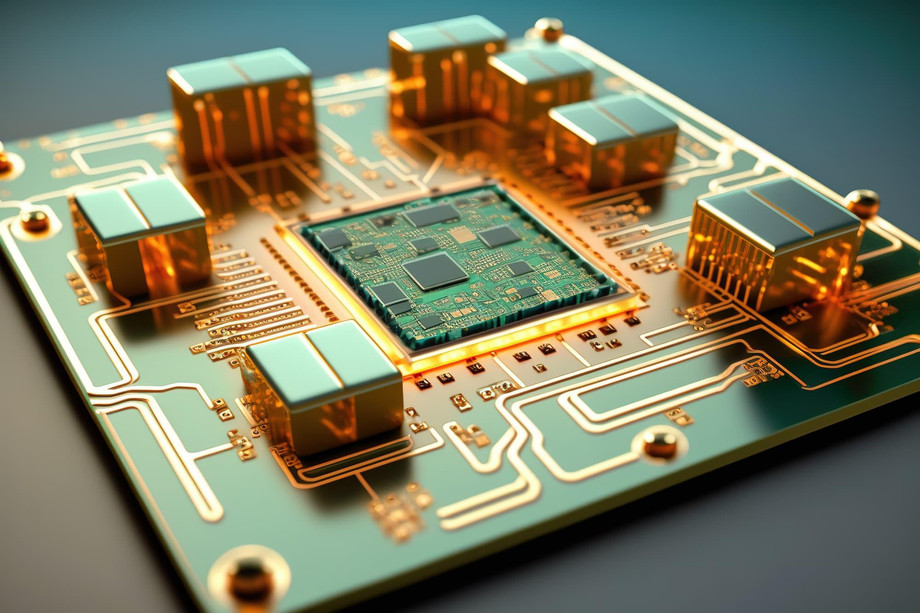The automotive industry stands at the threshold of a technological revolution, where embedded hardware solutions play a pivotal role in redefining manufacturing processes and enhancing vehicle performance. As the sector navigates the complexities of electric vehicles (EVs), autonomous driving, and smart technologies, the integration of advanced embedded systems has become essential for manufacturers aiming to maintain competitiveness and meet consumer demands. This blog delves into the critical aspects of leveraging embedded hardware solutions in automotive manufacturing, exploring their benefits, applications, and the future landscape of the industry.
The Role of Embedded Hardware in Automotive Manufacturing
Embedded hardware solutions are specialized computing systems designed to perform dedicated functions within a larger mechanical or electrical system. In automotive manufacturing, these systems are integral to various components, including engine control units (ECUs), infotainment systems, safety features, and advanced driver-assistance systems (ADAS). By embedding intelligent hardware into vehicles, manufacturers can enhance functionality, improve safety, and provide seamless connectivity.
1. Enhancing Efficiency and Productivity
One of the most significant advantages of embedded hardware solutions in automotive manufacturing is their ability to enhance efficiency and productivity. Automation has become a cornerstone of modern manufacturing, and embedded systems enable real-time monitoring and control of production processes. For instance, sensors integrated into manufacturing equipment can collect data on machine performance, facilitating predictive maintenance and minimizing downtime.
Moreover, embedded systems streamline assembly line operations by automating repetitive tasks. This not only speeds up production but also reduces the risk of human error, ensuring higher quality and consistency in manufacturing outcomes. As a result, manufacturers can achieve greater output with fewer resources, ultimately leading to improved profitability.
2. Driving Innovation in Vehicle Technology
The integration of embedded hardware solutions is a driving force behind the innovation of vehicle technology. As consumer expectations evolve, manufacturers are compelled to develop vehicles that are not only reliable and efficient but also equipped with advanced features. Embedded systems enable the implementation of smart technologies, such as infotainment systems, navigation tools, and vehicle-to-everything (V2X) communication.
These technologies enhance the overall driving experience by providing drivers with real-time information and entertainment options. Additionally, embedded hardware supports the development of autonomous driving capabilities, allowing vehicles to interpret data from sensors and make informed decisions on the road. This innovative shift towards smart vehicles is reshaping the automotive landscape and setting new standards for what consumers expect from their vehicles.
3. Ensuring Safety and Compliance
Safety is paramount in the automotive industry, and embedded hardware solutions play a crucial role in ensuring compliance with safety regulations. Modern vehicles are equipped with a multitude of safety features, from airbags and anti-lock braking systems to advanced driver-assistance systems (ADAS) that help prevent accidents. Embedded systems are responsible for monitoring and controlling these features, ensuring they operate effectively in real-time scenarios.
Furthermore, with the increasing emphasis on sustainability and environmental responsibility, automotive manufacturers must comply with strict emissions regulations. Embedded hardware solutions facilitate the monitoring of emissions and fuel efficiency, allowing manufacturers to design vehicles that meet or exceed regulatory requirements. This not only protects consumers but also enhances the reputation of manufacturers committed to sustainability.
4. The Impact of Electric Vehicles (EVs)
The shift towards electric vehicles has transformed the automotive landscape, creating new challenges and opportunities for manufacturers. Embedded hardware solutions are vital in the development and integration of EV technologies, such as battery management systems (BMS) and electric motor control units. These systems optimize energy usage, extend battery life, and enhance overall vehicle performance.
Moreover, as the demand for EVs continues to grow, manufacturers must adapt their production processes to accommodate new materials and technologies. Embedded systems facilitate the design and testing of new components, ensuring they meet performance standards while minimizing production costs. As manufacturers embrace electric mobility, the reliance on embedded hardware solutions will only increase.
5. Future Trends and Innovations
The future of automotive manufacturing is poised for further transformation, driven by advancements in embedded hardware solutions. Key trends shaping this landscape include:
-
Increased Connectivity: The proliferation of the Internet of Things (IoT) is facilitating greater connectivity between vehicles, infrastructure, and cloud services. Embedded systems will enable vehicles to communicate with each other and their surroundings, enhancing safety and efficiency.
-
Artificial Intelligence (AI) Integration: AI will play a significant role in optimizing vehicle performance and user experience. Embedded hardware solutions will support AI algorithms that analyze data from various sources, enabling smarter decision-making and predictive capabilities.
-
Cybersecurity Enhancements: As vehicles become more connected, the need for robust cybersecurity measures becomes critical. Embedded systems will evolve to incorporate advanced security features, protecting vehicles from potential threats and vulnerabilities.
Conclusion
In conclusion, embedded hardware solutions are revolutionizing automotive manufacturing, driving efficiency, innovation, and safety in the industry. As manufacturers leverage these advanced technologies, they are better equipped to meet the evolving demands of consumers and navigate the complexities of the automotive landscape. With the continued integration of embedded systems, the future of automotive manufacturing promises exciting possibilities, paving the way for smarter, safer, and more sustainable vehicles. Embracing these changes will not only enhance operational capabilities but also position manufacturers at the forefront of a rapidly changing industry.
To Know More About embedded hardware solutions

